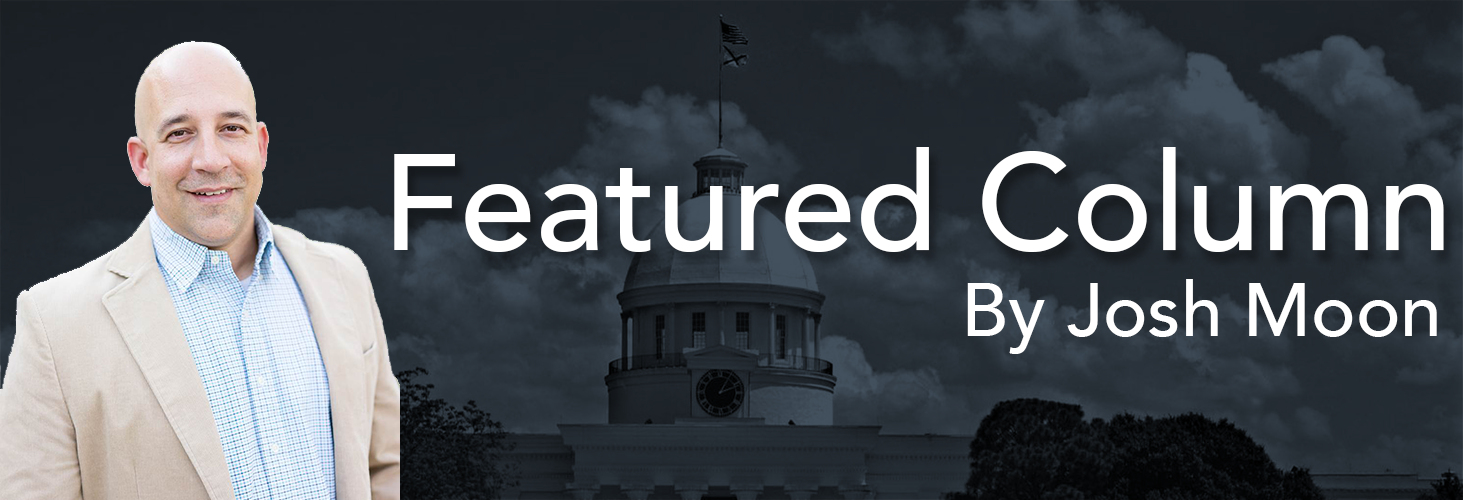By Josh Moon
Alabama Political Reporter
Political schemes are dirty.
The backroom dealings, backstabbing, lies, trickery, illegal acts and coverups represent the absolute worst in our government system.
But successful schemes – the ones that deftly block an appointment or shut down a multi-million-dollar deal or backdoor some cash for politician’s brother-in-law, they take smarts.
And that’s what makes this scheme to keep Craig Pouncey from becoming the State’s Superintendent of Schools so offensive – the unbelievable stupidity of it.
Every time those involved in this Pouncey scheme talking about it, it just gets dumber. It’s like watching a group of small children try to convince you that they didn’t eat the cookies, despite the fact there’s chocolate smeared all over them, bits of cookies are in their teeth and we can see them eating the cookies.
The children were back at it Wednesday in a hearing room at the State House, where a committee chaired by Sen. Gerald Dial was attempting to sort through exactly what happened.
Here are the particulars: Pouncey was the overwhelming favorite to become the next State Superintendent last summer, as the State School Board began interviewing candidates for the job.
All School Board members were given an anonymous allegation that Pouncey cheated on his doctoral dissertation and misused state resources to do so. Those board members, except one – Mary Scott Hunter – took a look at the allegation and tossed it into the circular file.
Hunter, however, called the Ethics Commission to ask about reporting requirements of elected officials. She was told that the head of the State agency is required to pass along a complaint, and so Hunter, who is not an agency head or officer of the board, passed that complaint along to the state department of education’s lead attorney, Juliana Dean.
Dean thought very little of the complaint but hadn’t decided what to do with it when she received a call from the Ethics Commission’s lead attorney, Hugh Evans, who was asking when she was bringing the complaint over.
Dean took the complaint to the Ethics Commission on a Friday and on the same day the Ethics Commission sent a letter to all state school board members alerting them that the Commission had received a complaint and was investigating Pouncey.
That letter came just before Pouncey was to be interviewed as one of six finalists and a day after Pouncey received the most votes from board members of any candidate to become a finalist.
And so, on Wednesday, Tom Albritton, the head of the Ethics Commission, was trying to explain how it was that an anonymous complaint – which the Commission, by its own rules, can’t investigate – became an investigation, and why Evans would take the unusual step of calling to request that the anonymous complaint – which Albritton said the Commission staff knew nothing about – be brought to his office. And finally, he had to explain how it was that an agency that routinely takes weeks to answer a complaint was able to provide same-day service on that anonymous complaint.
It went about as well as you’d expect, which is to say it didn’t go well at all.
After saying that the urgency on the part of the Commission came from his discussion with Hunter, Albritton immediately undercut that by saying he only discussed Hunter’s reporting requirements under State law.
After saying that the complaint wasn’t anonymous because it came from the State department of education, Albritton had no answer when Dial pointed out that State statute specifically forbids a third party from delivering a complaint in order to subvert the ban on investigating anonymous complaints.
Albritton also confirmed that he knew from the conversation with Hunter that the complaint was anonymous.
And then, after 30 minutes of Albritton claiming the Commission had no choice but to investigate the complaint because it came from Dean, Dean testified that she got a call from the Commission asking for the complaint.
After the hearing ended, I asked Albritton to tell me what percentage of complaints received by the Commission were reviewed and responses issued in the same day. Just an estimate, I said – ballpark it. 50 percent? 20 percent? 1 percent?
Albritton said he couldn’t say. Couldn’t guess.
He also said he wasn’t really sure why Evans would call and ask Dean to bring the complaint to him.
Well, I’m sure of one thing and don’t need to guess: If this is the bunch we have ensuring us of an ethical government, we’re in trouble.





















































